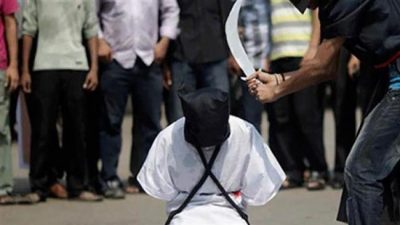Today, Amnesty International has released a public joint statement, signed by the European Centre for Democracy and Human Rights (ECDHR) and 39 other rights groups, regarding the cooperation in-between human rights NGOs calling the States to stand up for the dramatic situation in Saudi Arabia. The joint statement is addressed directly to Salmān bin ʿAbd al-ʿAzīz Āl Saʿūd, King of Saudi Arabia, pleading the monarch to stabilize the democratic condition among its frontiers and to put an end to the despotic violations against international principles. The letter opens with the remarks on the mass executions of 37 men on 23 April and on the systematic use of ill-treatments and tortures carried out against innocent detained civilians or human rights defenders, including women and underaged.
The document continues by welcoming the joint statement signed by 36 states during the 40th session of the United Nations (UN) Human Rights Council (HRC) and by pleading the urgent need of mass release of guiltless prisoners. As a matter of fact, the need of a monitoring mechanism over the human rights violations in the country is still one of the most delicate issues that urges to be correctly implemented and established. In addition to that, the condition of the ten persecuted women’s rights defenders still apprehend the international arena. Despite their partial release (seven out of ten are now provisionally free), the entire group is under threat of possible judicial repercussions, as they are yet waiting for their pending trial verdicts. After a total of ten months detention with no clear charge, their future still hangs above a pit of incertitude and fragility.
The degree of human rights violations in Riyadh has grown exponentially in the past years, the use of the death penalty has increased intensely (Saudi Arabia is the third most executing country in the world, holding the ground against China and Iran) and the official authorities continue to crackdown on civil society on freedom of expression, freedom of association and any other form of political opposition. A dystopic strategy which has been brutally inflated by the reiterated use of the counter-terrorism measures and by the inquisitive work of the Specialised Criminal Court (SCC).
This sums up to the recent week’s news, when the international Saudi stronghold has been vitally shaken and tackled by the publishing of the UN Report by the Special Rapporteur, Agnes Callamard, on the Investigation for the unlawful death of Mr. Jamal Khashoggi. A decisive turn of event that has crushed the intangible country’s aura by providing a much more critical approach to international actors and counterparts.
ECDHR welcomes the recent successes of both the United Nations and of the most dedicated governments for Human Rights issues, especially for the revolutionary remark delivered during the 40th session of the Human Rights Council through which it was firmly defended the principle that no State is above scrutiny for its human rights record. In hopes that that such stream progresses with the very same intensity, we pledge the excellent work of our partners and of additional striving supporters.

